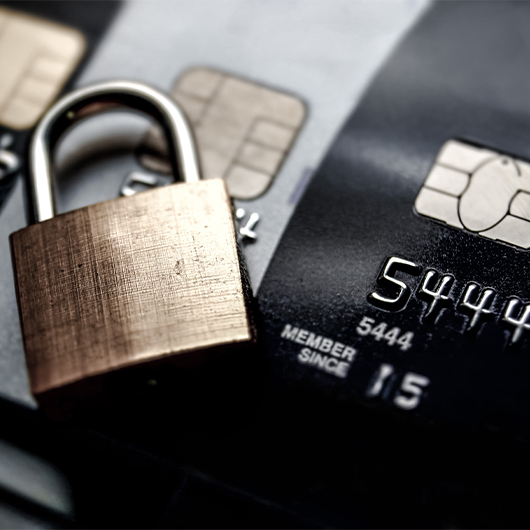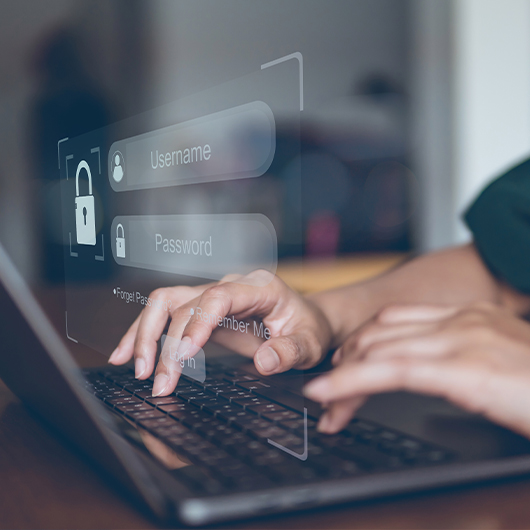Common Scams and Tips on How to Avoid Them
Common Scams and Tips on How to Avoid Them
To best protect yourself, your personal information, and your finances, it’s important to educate yourself on how scams work and how to best avoid them. According to the FBI and the Federal Trade Commission, some of the most common fraud/scam schemes include the following:
Phishing
Phishing (pronounced fishing), is a tactic used by fraudsters in an attempt to steal sensitive, personal and financial information from a victim. Fraudsters may conduct phishing through email, telephone calls (referred to as vishing) or through text message (referred to as SMiShing) while appearing to be a legitimate and trusted company or person.
Tips to protect yourself against fraudsters:
- Be cautious of unexpected emails, telephone calls or text messages. NEVER provide personal or financial information in response to any such communication.
- Fraudsters often use sense of urgency tactics with phishing emails. Be wary of email that urges immediate action.
- Don't click on links in unsolicited emails and texts.
- Even if the caller already knows personal information about you (i.e. SSN, birthdate, card number, etc.), never provide additional information to them.
- Don't trust caller ID as it may be spoofed to appear to be a trusted number. If you are unsure of the legitimacy of a communication (i.e. email, text message, telephone call), contact the source through a trusted telephone number or website (i.e. telephone number on the back of your card). Although fraudsters can spoof a telephone number, if you hang up and call the trusted number, you will reach the actual owner of that number.
- Don't give an unsolicited caller remote access to your computer.
- If you believe you are a victim of phishing or spoofing, please file a complaint with the Internet Crime Complaint Center.
- Utilize your bank's account alerts if available to monitor suspicious activity.
- Please Note: Although Dollar Bank may contact customers questioning suspicious debit or credit card charges, DOLLAR BANK WILL NEVER ASK FOR PERSONAL OR FINANCIAL INFORMATION.
- For additional protection, learn how to set up fraud alerts.
Credit/Debit card fraud
Credit or debit card fraud is considered the unauthorized use of card information to fraudulently obtain money or property.
Credit or debit card information can be stolen in various ways, such as from unsecured websites, skimming or finding a lost card. It is important to monitor your bank accounts and report any unauthorized transactions to your bank and local police department.
Tips to protect yourself against card fraud:
- Only make purchases on secure websites from companies you trust.
- Don’t send your credit card information via email.
- Setup account alerts using your bank’s Online Banking or mobile app and immediately report any unauthorized activity.
Identity theft
Identity theft is the possession or use of identifying information of another person, without that person’s consent, for financial gain or to further any unlawful purpose. Skilled thieves have a variety of ways to obtain your personal information including stealing your mail (i.e. bank and credit card statements, tax information, new checks or credit card offers), phishing online, or completing a change of address form to divert your mail.
Tips to protect yourself against identity theft:
- Monitor your finances and credit reports regularly.
- Use strong passwords for your online accounts.
- Don’t email sensitive information.
- Don’t leave sensitive information unattended in a public area.
Click here for more information on identity theft prevention and protection.
Quick Response (QR) code fraud
The rise in QR code popularity for restaurant menus, bill payments and more has also led to a rise in QR code fraud. QR codes are square bar codes that can be scanned by smartphones to direct the individual to the desired website or payment page. Cybercriminals are tampering with codes to instead send victims to sites that steal their login and financial information.
Tips to protect yourself against QR code fraud:
- When scanning QR codes, doublecheck the website you are taken to and ensure it is the correct site, looks authentic and there are no spelling errors in the URL.
- Exercise caution when entering any confidential information on a site you are directed to from a QR code. Try to avoid making payments through these sites and instead manually enter a known and trusted URL.
- Make sure the QR code has not been tampered with (i.e. a sticker placed on top to direct your scan elsewhere).
- Do not download an app from a QR code - download it directly through your phone's app store instead.
- If you receive an email from a company you recently made a purchase from saying the payment failed and you need to use a provided QR code to re-enter your payment information, contact the company directly to verify. Use the company's contact number from a trusted site, don't call the phone number provided in the email.
- Only use the built-in QR code scanner through your phone's camera - do not download a QR code scanner app.
- If you receive a QR code from someone you know, contact them through a known number to confirm it is actually from them.
Counterfeit cashier’s checks
A counterfeit cashier’s check scheme can target individuals who attempt to sell merchandise through classified advertisements. As part of the scheme, an interested party will attempt to provide a cashier’s check for an amount greater than the sales price and the seller is told to send the excess amount to a “shipper.” Variations of the scheme will have the sender of the cashier’s check claim that the amount was sent in error and will request the seller to send the excess funds back.
After the counterfeit cashier’s check has been deposited into the seller’s bank account, it will later be returned unpaid, resulting in the check amount being deducted from the seller’s account. If the seller shipped the merchandise for sale or withdrew any “available funds” from the check, the seller will have lost that merchandise or money.
If you believe you may have fallen victim to such a scam, you can file a report with the FBI’s Internet Crime Complaint Center or contact your local police department.
Lottery scams
Lottery scam victims receive an email informing them that they are the winner of an international lottery. The victims are asked to pay fees "to begin their lottery claim." If you believe you are a victim of a lottery scam, please file a complaint with the Internet Crime Complaint Center.
Nigerian letter or “419” scams
Nigerian letter or "419" fraud involves the recipient of a letter or email being offered an "opportunity" to share in millions of dollars the sender is attempting to transfer out of Nigeria. The recipient is asked to share their personal information, including bank account numbers, and to pay taxes, legal fees, and more that would be reimbursed once the money is out of Nigeria. These millions of dollars do not exist and in the end, the victims of these schemes lose out on money and are subject to identity theft.
If you receive a letter or email from Nigeria, contact the U.S. Secret Service, your local FBI office, the U.S. Postal Inspection Service or register a complaint with the FTC Complaint Assistant.
Romance scams
Romance scams are an additional threat that has become more prominent in recent years. According to the FBI's Internet Crime Complaint Center (IC3), more than $600 million was lost to romance scams in 2020 alone.
Romance scammers create fake profiles on dating sites and social media platforms to build relationships with unsuspecting targets. After creating a sense of trust, they then make up stories to ask for money.Tips to avoid romance scams:
- Never transfer or wire money to an online love interest you haven’t met in person.
- Do a search for the job the person has to see if there are any scam stories out there.
- Search the person's profile photo to see if it's tied to any other names.
Stop communicating with the person and and contact your bank right away if you think you’ve been scammed. You should also report your experience to the online dating site and the FTC.
Additional online safety resources
For additional information on scams or fraud prevention information, visit any of the following resources:
Keeping you and your personal information secure is a priority at Dollar Bank. Check out dollar.bank/security for additional security information or contact us today if you have any questions about your accounts.
This article is for general information purposes only and is not intended to provide legal, tax, accounting or financial advice. Any reliance on the information herein is solely and exclusively at your own risk and you are urged to do your own independent research. To the extent information herein references an outside resource or Internet site, Dollar Bank is not responsible for information, products or services obtained from outside sources and Dollar Bank will not be liable for any damages that may result from your access to outside resources. As always, please consult your own counsel, accountant, or other advisor regarding your specific situation.
Posted: February 02, 2022




